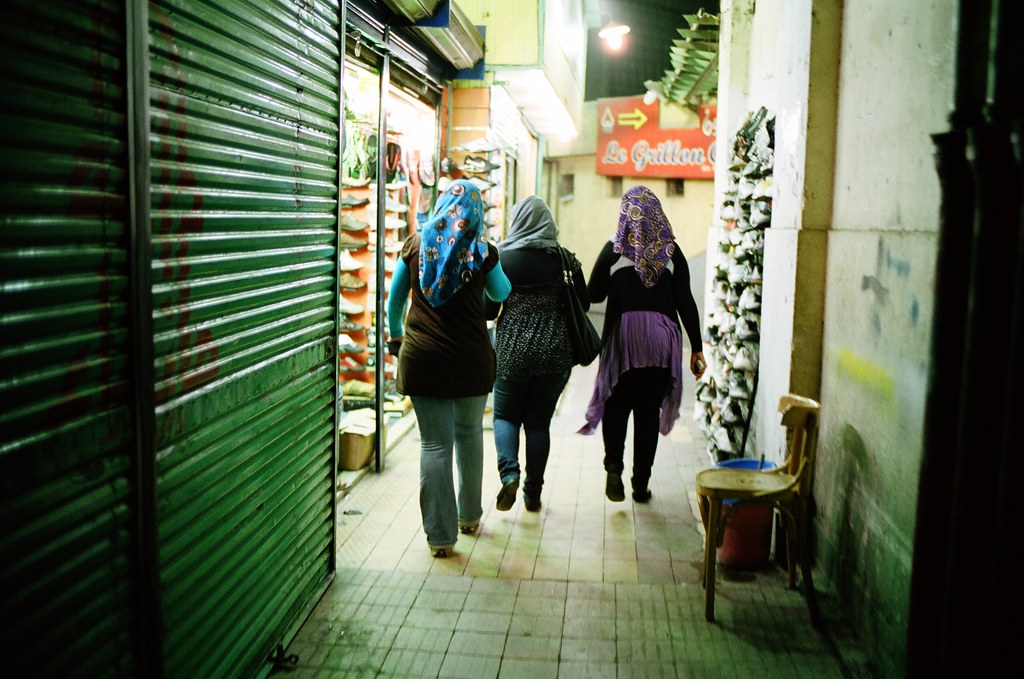“Somehow, when you’re a girl that’s living by herself, everyone knows. People take liberties that they shouldn’t be taking,” says 24-year old Marwa Khaled.*
Khaled is not the only woman in Egypt who decided to move out of her childhood home, in the hopes of building a life for herself and pursuing her dreams. The semblance of independence that comes with moving out is accompanied by the trials and tribulations of navigating life as a single woman in Egypt. The issue with independence is that it often translates to defiance of societal expectations and cultural norms.
Khaled, who moved to Cairo to pursue her Bachelor’s degree, tells Egyptian Streets that she was warned, before her move, about mentioning that she was living by herself, both for her security and for the cultural associations. She explains that when people find out that a woman is living on her own, their perception of her changes, assuming corrupt morals.
Bags Packed: Ready to Leave
Although living independently is not a common practice in Egypt for men or women, women are more marginalized due to cultural stigmas.
The only realm that leaves room for women to leave their family homes is often assumed to be marriage. As such, women spend a large part of their lives supported financially by their families, but they are shielded from worrying about various burdens associated with running a household, such as groceries, cleaning and laundry, and utility bills.
Many women begin their journey of independence by venturing to Cairo from other governorates to study. Angela Sous, who moved to Cairo from Alexandria at the age of 17 to study, says that people have many expectations of a woman when she lives alone.
“People assume that just because I live by myself, then I must be living my life to the fullest, when in reality, living alone means learning to become more responsible for your wants and needs,” Sous tells Egyptian Streets.
Living alone often means that there is more responsibility than freedom. Not only do women living on their own have to navigate societal expectations, but they also bear the weight of being responsible for themselves from a young age.
Although many women who live independently are doing so out of necessity due to their circumstances, many women in Egypt break the barriers of their dependency on their households.
Meryt Magued, a 29-year old Behavioral Analyst, took the first steps towards independence when she decided that she wanted to move out of her parent’s house as a single woman.
“I didn’t tell my parents I was planning on moving out. It wasn’t until I had found an apartment that I told them, and they thought I was joking,” Magued tells Egyptian Streets.
The Challenges of the Mundane Tasks
The biggest challenge, Magued explains, was maneuvering and understanding how to take care of her obligations. She explains that the smallest tasks were handled on her behalf when she lived with her parents. Even mundane tasks such as waking herself up with an alarm were a challenge, as she had always gotten help from her parents.
“I had to become responsible for myself. I got my bed five months in and my couch two months in. Rent was so expensive I had to juggle three jobs. I never fixed electricity and didn’t know how to ask for help. I also couldn’t cook, so I took a one-week break from work to learn everything,” Magued says.
Similarly, Khaled narrates that receiving help as a woman living alone is much slower because women are often not taken seriously if not accompanied by men.
“If I want to set up the WIFI, the technicians always ask to talk to the head of the house, and when I explain that the head of the house isn’t available, they insist on coming back when he is. And, some technicians aren’t comfortable coming into our house unless there is a man present,” she recounts.

Navigating Safety and Security
Safety tops the challenges for women who move out. In a predominantly patriarchal society, having a ‘man of the house is considered a given. Because women living alone have to be responsible for their own safety, they are more likely to be subjected to harm than people who live with their families.
Magued shared that during the COVID-19 lockdown, she would order many necessities online.
“The courier that delivers my orders caught up on my schedule, he told me when I would be home and when I wouldn’t be, so I had to lock the door for months out of fear,” she states.
The fear of strangers finding out about your living situation when you are a woman is heightened because there is no one around to help.
“Some guy followed me in his car around the house. I was so scared he would know that I live alone, so I kept cruising until I lost him,” Magued explains.
Khaled’s experience also suggests that neighbors could have a particular type of entitlement when they find out that you are a woman who lives without her parents. Khaled shares that when neighbors come and ask you for a favor, they always make sure that they tell you that they are aware of your living situation; in one way, it is their way of strong-arming you into doing specific services and tasks.
“My sister previously got into a fight with a security guard because he commented on her choice of clothing. One of the women in our neighborhood told me that she knows I live without my parents, so she took it upon herself to act as a parent and tell my sister that she shouldn’t be out on the street alone,” she explains.
Living independently as a woman is often romanticized and glamorized when the reality of it is fraught with challenges. Despite the heightened tribulations due to the constraints of societal pressure and expectations, many women still decide to opt out of the binary of either living with their parents or living with their husbands.
“My parents thought I would be back, but it has been three years, and I don’t think I ever will,” Magued summarizes.






Comment (1)
[…] The Trials and Tribulations of Living Alone as a Woman in Egypt Cairo’s Cornerstone Religious Monuments […]